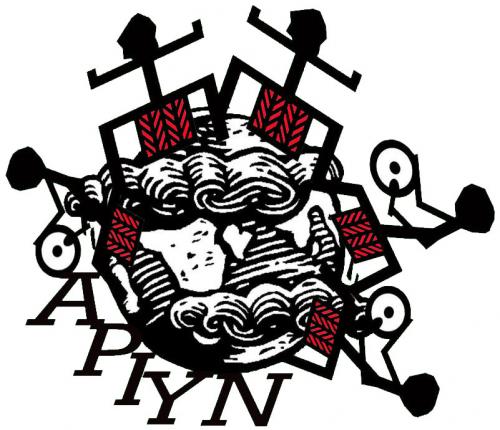June 10, 2013, Alta, Norway – Asia Pacific Indigenous Youth Network, represented by Marifel Macalanda, presented the experiences and perspectives of the Indigenous youth on the United Nations Declaration on the Rights of Indigenous Peoples (UNDRIP) in one of the side event of the Global Indigenous Peoples Preparatory Meeting on the World Conference on Indigenous Peoples (WCIP). This side event entitled “Realization of the UNDRIP in Asia” was organized by the Asia Indigenous Peoples Pact (AIPP) and around 60 Indigenous Peoples from various regions participating in the Global Indigenous Peoples Preparatory Meeting attended the side event.
Ms. Macalanda discussed the good practices and challenges of the youth on UNDRIP focusing on the provisions on Education, Culture, Employment, Youth and Children. This presentation was based from the sharing of the Indigenous youth participants of the Asia-Pacific Indigenous Youth Preparatory Meeting on WCIP held in Baguio City, Philippines. Generally, it is a challenge among the Indigenous youth in the region how to disseminate and educate their fellow Indigenous youth as to the provisions of the UNDRIP so that they may be capacitated in helping the Indigenous Peoples in their communities in the realization and full implementation of the UNDRIP in their states.
According to her presentation, due to the colonial and commercialized character of education, the youth in the region faced a lot of challenges such as high costs of education, lack of facilities, non-recognition of Indigenous knowledge in the education system, among others. This character of education in most countries in the region also resulted to the disintegration of culture especially among the Indigenous youth living in the urban. The colonial and mainstream media also contributed to the disintegration and disrespect of the Indigenous culture. Most of the states in the region also do not provide appropriate employment and better salary to the youth. Moreover, the education curriculum emphasizes on courses that are that beneficial to the needs of the Multi-national Corporations (MNC’s) and mono capitalists’ states and not their communities or even state’s needs. When Indigenous youth voiced out their concerns, they faced various harassment such as surveillance, political vilification to arrest perpetrated by the states’ armed forces.
Despite these challenges, the youth are still optimistic that social change is still attainable. Based on their capacity, they conduct activities to help address these concerns. Among the activities include education-training among the youth in the schools and in the villages, cultural exchanges among the youth themselves and with their elders, among others.
In her conclusion, Ms. Macalanda said that the Indigenous youth recognizes the challenges and the long way that Indigenous Peoples still have to thread for the full realization and implementation of the UNDRIP. With this, the Indigenous youth, committed to continue the IP struggles until the Indigenous Peoples’ rights is achieved”.
Together with Ms. Macalanda is Mr. Abdon Nababan, the secretary-general of the Alyansi Masyarakat Adan Nusantara,AMAN (National Alliance of Indigenous Peoples in Indonesia) and Elina Horo of the Adivasi Womens Network, India. Mr. Nababan discussed their experiences in forwarding their rights at the National level and their successful struggles related to UNDRIP. Ms. Horo on the other hand, shared the challenges that Indigenous women are facing in Asia.



